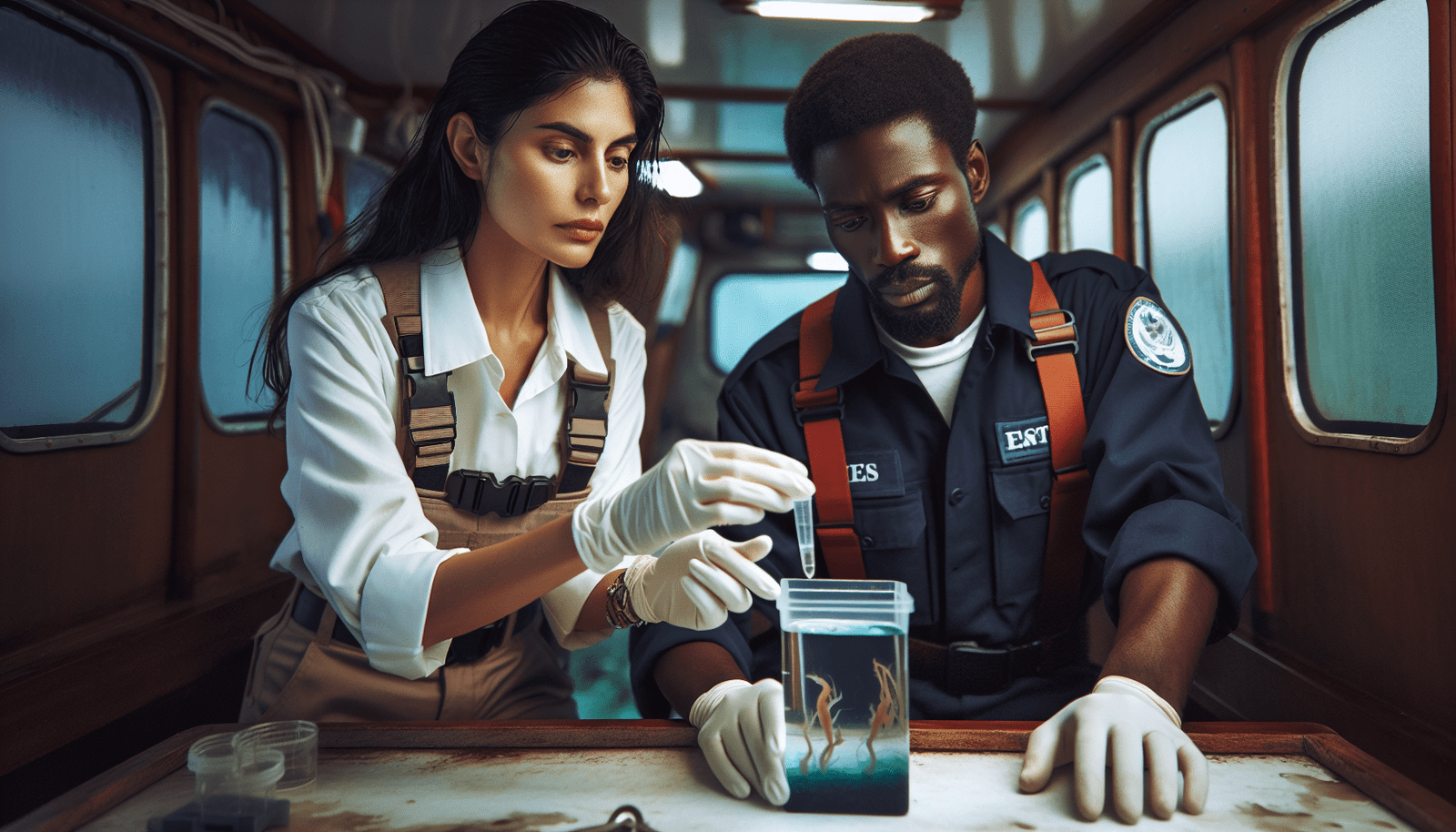If you’ve ever spent time on a boat, you’re probably familiar with the thrilling sense of freedom that the open water can bring. But have you ever considered the important role you’re playing in marine conservation? That’s right, your love of boating can contribute significantly to sustaining our precious marine ecosystems. “The Partnership Between Boating And Marine Conservation Organizations” explores this fascinating symbiotic relationship. It uncovers how boating enthusiasts and marine conservation groups are increasingly joining forces to protect and preserve the world’s oceans, seas, and waterways for future generations. A sail at a time, an ocean life at a time, your boating adventure might just be a hero’s journey for marine life.
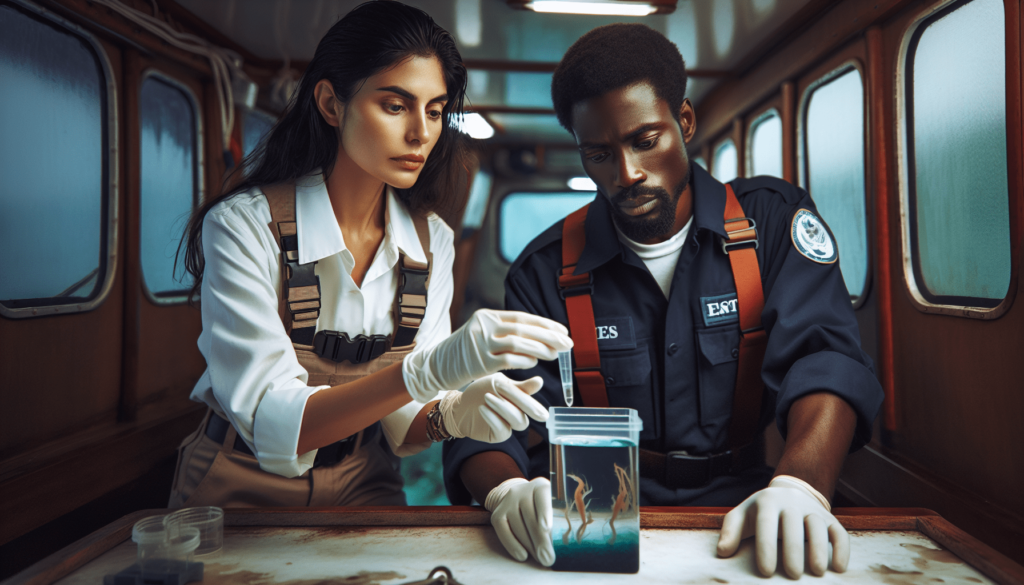
Origins of the Partnership
In the face of environmental concerns, unique collaborations have emerged that strive to fight for the longevity and protection of marine life. One such incredible association is the partnership between boating and marine conservation organizations.
Historical developments
This partnership is a relatively recent development, paralleling the growing recognition of climate change dangers and the crucial role that human industries play in combating this global crisis. It was born out of the understanding that boaters, as regular users of the marine environment, have a vested interest in preserving these ecosystems.
Key players initiating the partnership
A multitude of parties have initiated and motivated this alliance, from individual boaters who recognize their stewardship role, to large boating companies who see both the corporate responsibility and business potential in sustainability, and of course, the core marine conservation organizations themselves.
The motivation behind the collaboration
The primary motivation behind the collaboration was the realization that humans and nature are intricately connected. Boating enthusiasts, who devote a significant portion of their free time on the water, directly benefit from a healthy marine ecosystem.
Aims and Objectives of the Partnership
The partnership between boating and marine conservation organizations has several significant aims and objectives.
Promotion of conservation ideas among boating enthusiasts
One of the central objectives is to promote conservation ideas among boating enthusiasts. These include the responsible disposal of waste, avoiding anchoring in sensitive habitats, and educating others about marine conservation.
Joint initiatives on protection and restoration of marine habitats
The partnership aims to undertake joint initiatives geared towards the protection and restoration of marine habitats. Such initiatives rely on the skills and resources of both boating and marine conservation groups.
Marine research and data collection
Boaters often venture to areas of the sea that researchers cannot easily access. The partnership leverages this opportunity, using boaters as citizen scientists to gather valuable marine data for scientific research.
Wildlife protection measures
The partnership also encourages boaters to play their part in protecting marine wildlife. This might involve adhering to guidelines for encounters with marine life, such as avoiding disruption of feeding and breeding habits, and reporting injured or stranded animals to appropriate authorities.
Promotion of sustainable fishing and boating techniques
Sustainable fishing and boating techniques are vital to maintaining healthy marine populations and ecosystems. The partnership promotes these techniques among boaters, helping to reduce overfishing and habitat destruction.
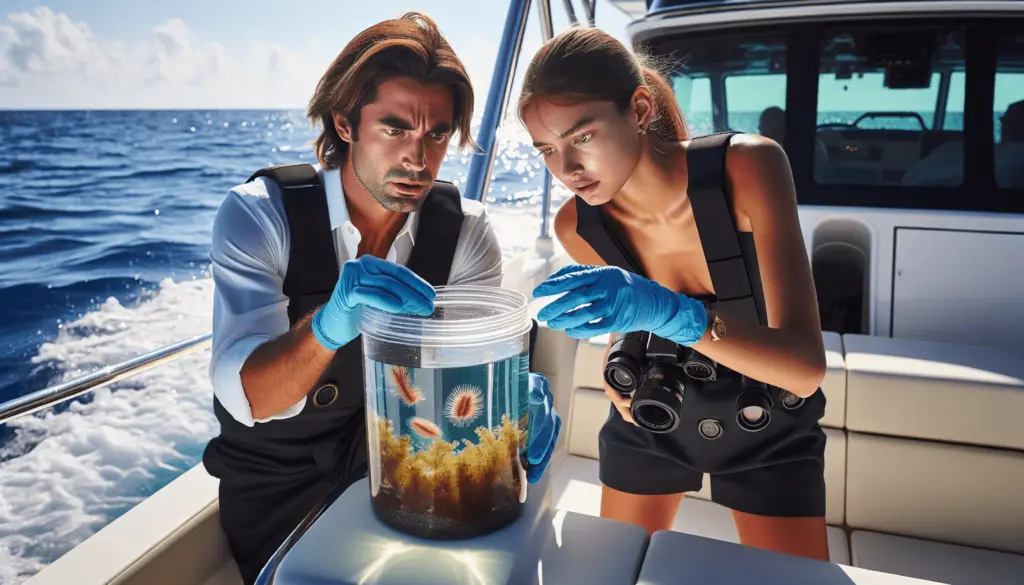
Impact on Boating Industry
The partnership has exerted substantial influence on the boating industry.
Influence on boat design and manufacturing
Boat designs are now being reimagined with conservation in mind, integrating technologies that minimize pollution, such as electric engines, and using sustainable materials in construction.
Changes in boating practices
Practices such as anchoring are being revisited, with boaters encouraged to use mooring buoys or anchor in sandy areas to avoid damaging sensitive marine habitats.
Growth of eco-friendly boating solutions
From biofuel to solar-powered boats, the partnership has fuelled growth of eco-friendly boating solutions, making sustainable boating more accessible and affordable.
Educational programs for boaters about marine conservation
The partnership has also led to educational programs designed to educate boaters about marine conservation, equipping them with knowledge and tools to contribute to conservation efforts.
Impact on Marine Conservation Efforts
The partnership has also brought about significant positive changes in marine conservation efforts.
Increased funding and support
Through the partnership, marine conservation organizations have gained additional funding and support, enabling them to expand their reach and impact.
Greater public awareness and participation
The engagement of the boating community, a group not traditionally involved in conservation efforts, has raised greater public awareness and participation.
Utilizing boats for conservation activities
The partnership has utilized boats for conservation activities such as pollution clean-up efforts, rehabilitation of damaged ecosystems, and assisting in marine animal rescues.
Benefits of boater-provided data for conservation research
Data gathered by boaters has proven invaluable for conservation research, providing real-time insights into marine life and habitats, and helping to inform conservation policies and actions.
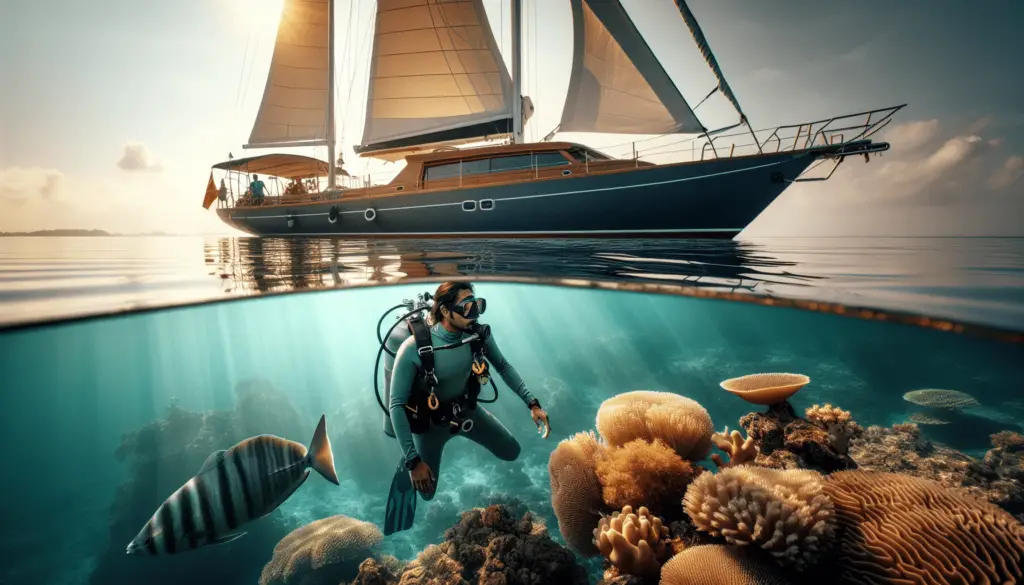
Challenges in the Partnership
Despite the many positive outcomes, the partnership also faces some challenges.
Balancing interests of boating industry with conservation goals
Balancing the economic interests of the boating industry with the goals of marine conservation can be complex, calling for careful negotiation and compromise.
Potential conflicts over marine regulations
Potential conflicts might arise over marine regulations, such as restricted boating areas and fishing quotas, which may be perceived as restrictive by the boating community.
Challenges in education and awareness campaigns
Effective education and awareness campaigns require resources and carefully crafted messaging to change entrenched attitudes and practices.
Solutions and Overcoming Challenges
Strategies for overcoming these challenges are vital for the partnership’s success.
Strategic planning and collaborative decision making
Strategic planning, combined with collaborative decision making, can help parties find mutually beneficial solutions, balancing economic interests with conservation goals.
Incorporation of scientific research in policy-making
Incorporating scientific research in policy-making ensures that actions taken are evidence-based and effective in achieving conservation goals.
Community engagement and stakeholder management
Engaging communities and managing stakeholders appropriately can help mitigate conflicts, build understanding, and cultivate a shared sense of responsibility for marine conservation.
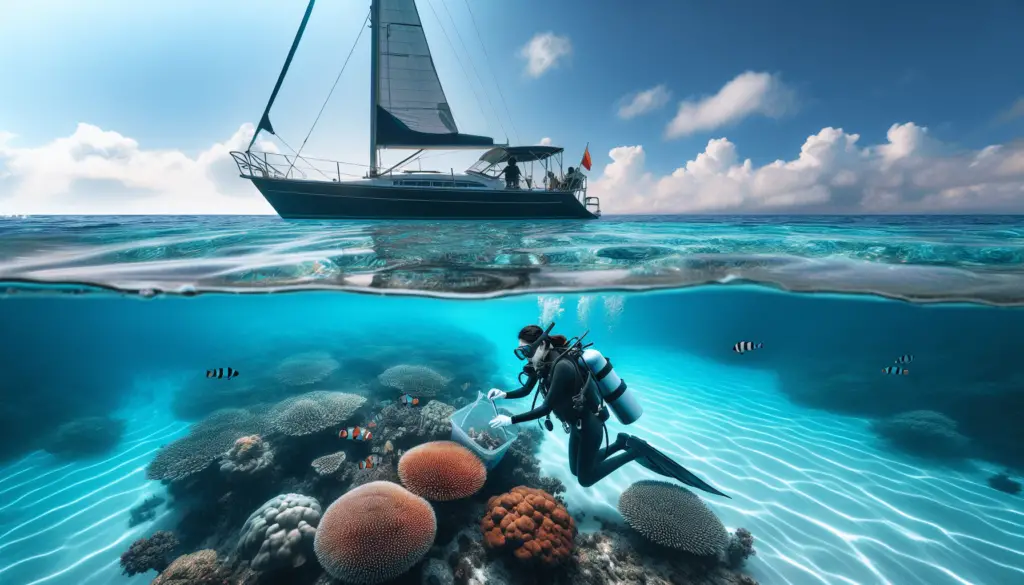
Success Stories from the Partnership
The partnership has given rise to a number of success stories.
Successful joint projects and initiatives
Joint projects such as habitat restoration efforts, pollution clean-up campaigns, and citizen science initiatives demonstrate the constructive outcomes of the partnership.
Case studies of improved conservation through boating involvement
Case studies have showcased the instrumental role of boaters in improving conservation outcomes, from providing critical data for research, to rescuing stranded marine animals.
Stories of boating communities contributing to marine conservation
Inspiring stories have emerged of boating communities going above and beyond to contribute to marine conservation, motivating others to do the same.
Observations from Other Similar Partnerships Worldwide
Looking at similar partnerships worldwide can shed light on possible opportunities and challenges.
Global trends and observations
There is an increasing global trend towards partnerships between human-centered industries and conservation entities, suggesting a broader movement towards recognizing human responsibility for environmental stewardship.
Lessons learned from other partnerships
Insights from other partnerships could prove invaluable, offering lessons that can help to cultivate a more mutually beneficial and effective partnership.
Potential for collaboration with other international partners
Examining similar international efforts may unveil potential for collaboration that can strengthen the impacts of the boating and marine conservation partnership.
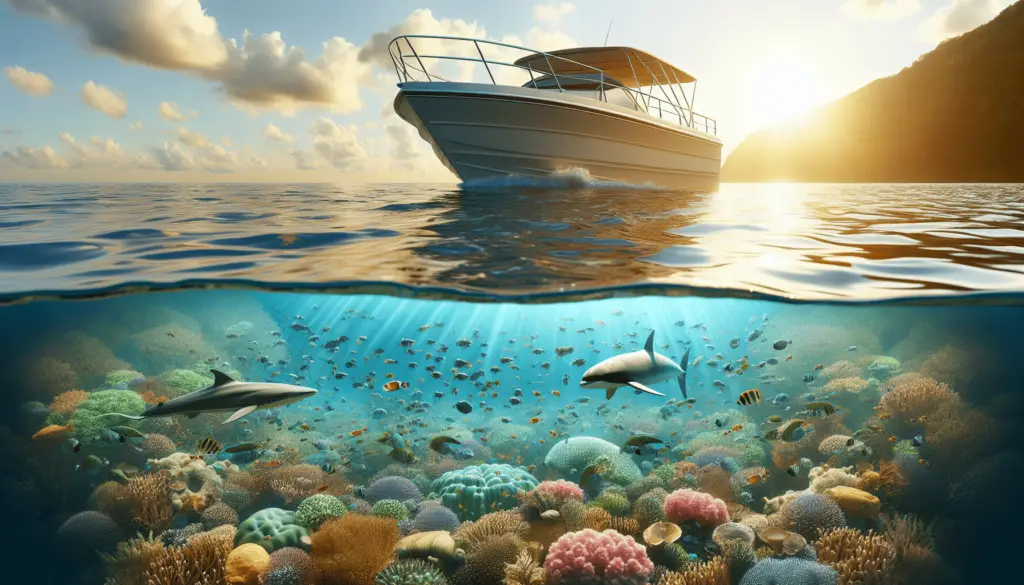
Future Prospects and Directions for the Partnership
Looking ahead, the future is ripe with potential for expanding and strengthening the partnership.
New initiatives and projects on the horizon
New initiatives and projects on the horizon hold promise for deeper engagement of the boating community in conservation efforts.
Technological advances and their potential impact
As technology advances, possibilities for integrating more efficient, lower-impact boating technologies, and sophisticated data collection methods, open up.
The role of regulations and policy developments
Regulations and policy continue to play a key role in shaping the direction of the partnership, and could usher in new opportunities for conservation gains.
Conclusion: Significance of the Partnership for Sustainable Seas
In conclusion, the partnership between boating and marine conservation organizations signifies a powerful alliance in the fight for sustainable seas.
Importance of collaboration for marine conservation
Such collaborations not only fuse resources and expertise but also foster a broader public consciousness about the importance of marine conservation.
Role of boating community in maintaining healthy seas
The role of the boating community is essential in maintaining healthy seas. Their participation in conservation initiatives can contribute significantly to protecting and restoring marine ecosystems.
Potential impact on future generations and marine life
The success of this partnership holds enormous potential impact, not only for the present marine life but also for future generations who stand to inherit the legacy of our actions today. It is an inspiring model of cooperation where every stakeholder has a shared commitment to nurturing and protecting the marine world.

